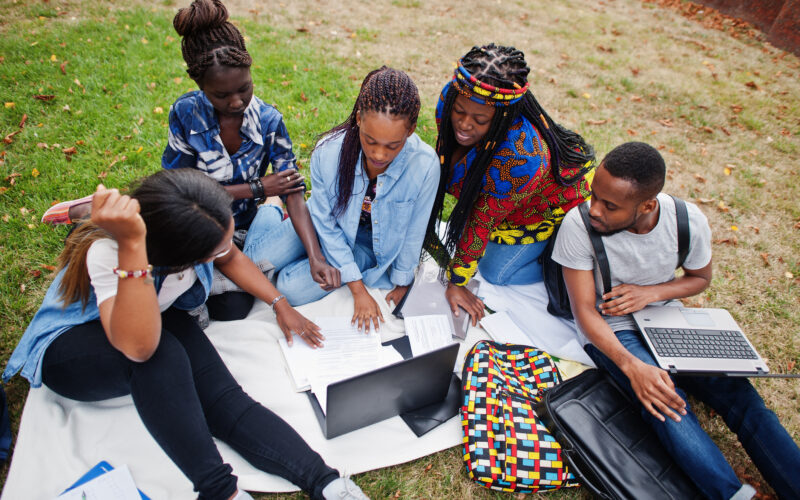By Wagdy Sawahel
United States university internationalisation practices and policies reproduce and reinforce cultural and social racism, according to a recent study based on the experiences of Sub-Saharan African students.
Rather than enriching our campuses with diverse groups who all experience dignity and respect at the university, we find the policies and practices around internationalisation on campus are not only unhelpful but actually exacerbated the very conditions around exclusion, discrimination, and the inequity they ostensibly seek to redress, the study concludes.
It finds that internationalisation policies appear to be empty concepts with positive biases.
They are laden with liberal ideals of dignity and respect but pivot quickly to neoliberal notions of enrichment and economic gain and position international students and scholars as assets of the neoliberal agenda tasked with adding special richness to positively influence the university brand and marketability.
The study, International students and the neoliberal marketplace of higher education: the lived experiences of graduate students from Sub-Saharan countries in Africa of a US university internationalisation policy, was written by Nyaradzai Changamire and Jacqueline Mosselson at the US-based University of Massachusetts Amherst, and Chrystal George Mwangi at George Mason University, US, and published in the Higher Education Journal on 20 November.
When we couple the analysis of the policies with the lived experiences of students, faculty and administrators on campus, we expose an undergirding of neo-racism impacting all facets of the students’ experiences and interactions, the authors noted.
Through a small-scale study of the experiences of graduate students from Sub-Saharan African countries, we see evidence of material and discursive representations of race that produce material inequalities that are then used to legitimise racial formations.
The home countries of the graduate students included Malawi, Nigeria, Rwanda, Zimbabwe, Ghana, and Senegal.
Programmes perpetuate white superiority
The authors say they have demonstrated ways in which the implementation of campus internationalisation programmes is part of the larger discourse of racism on both the national and international arenas, perpetuating white superiority and implementing policies that reproduce the inequities that reify and legitimise neo-racism.
Graduate students from Sub-Saharan countries described experiencing disrespect based on neo racist assumptions of national origin and skin colour. Rather than feeling part of the institution, they are marginalised as instruments to enrich the campus, the US study noted.
There are multiple examples of this, from a policy that considers them as assets in service of the university to lack of understanding and outreach to them once they arrive on campus, the study added.
paradoxically positions them as tools through which the neoliberal university can market itself as a progressive entity while simultaneously reifying neo racist attitudes towards their abilities, needs, and socioeconomic statuses.
Elizabeth Buckner, assistant professor at Ontario Institute for Studies in Education at the University of Toronto in Canada, told University World News: This seems like an important study, as lots of academic research has pointed out that international students are often celebrated for their diversity in the abstract, with less attention paid to their lived experiences of racism, discrimination, economic exploitation and marginalisation.
She said lots of research has shown that university campuses in the US main spaces where white, middle-class, Christian, monolingual English-speaking, citizen students are treated as the norm and students who do not fit this perceived norm face racism, discrimination or are treated as others.
This definitely needs to change, Buckner said.
Beyond US universities
However, she added that this is not only an American story. Racism, colourism and other forms of ethnic, religious or linguistic discrimination are found in different ways in every country and every higher education system, and so institutions everywhere need to see how they can do better to make their institutions more inclusive, Buckner pointed out.
Buckner is the lead author of the 2021 Canadian study entitled Diversity without Race. How university internationalisation strategies discuss international students.
That study found that institutional strategies of 62 higher education institutions in Canada, the United States and the United Kingdom connect international students to an abstract notion of diversity, using visual images to portray campus environments as inclusive of racial, ethnic and religious diversity. Yet, strategy documents rarely discuss race, racialisation, or racism explicitly, even though most international students in all three countries are non-white.
Also, results from a British study, involving interviews with black African international students studying in 10 different UK-based universities located in eight English cities, indicated that racism and othering pervade all aspects of their lived experiences, both inside and outside the university. That study, Racism and Othering in International Higher Education: experiences of black Africans in England, was published in April 2021.
Assessing racial justice at universities
Higher education expert Magdi Tawfik Abdelhamid, at Egypt National Research Centre in Cairo, told University World News that he would like to see the establishment of a global ranking system for anti-racist higher education institutions to help institutional leaders in developing racial justice in their universities as well as addressing the multidimensional aspects of racism in the university community and society and to act as a guide for foreign academic and student communities for selecting hosting universities.
He said such a ranking system could be based on assessing campus climate, institutional culture, community partnerships, student enrolment, staff hiring and retention practices, and curriculum design along with institutional strategy, policies and operations through a racial justice lens, including racial diversity, equity and inclusion efforts institution-wide.
Towards ethical internationalisation
Despite the strong and growing presence of students from countries in Sub-Saharan countries in Africa enrolled in US universities, which reached approximately 42,000 students before the coronavirus pandemic, little research exists focusing on their experiences of education in the US, according to the American study.
It calls for future research to examine how university internationalisation plans can engage more ethically to better meet the needs of all students, particularly those from whom it expects so much but provides so little.
Academia must be accountable for the differential impact of race on the experiences of students, the study said.
The study calls for more critical work on the students’ experiences as they navigate a paradoxical US system in which they are intersectionally marginalised while simultaneously accessing the benefits the US system affords them and contributing to the dominance of the system they have opted into for graduate education.
Racism is not new in universities anywhere in the world, Buckner said.
These are deep-seated problems rooted in colonisation, expansionism, and Euro-centrism, and there are no easy answers or quick fixes.
She said higher education institutions and faculty need to start with educating themselves about the realities and consequences of racism, colonisation and American hegemony in the world.
Wagdy Sawahel: US international HE ‘reinforces racism’, study finds
First published by University World Press. Re-published here by permission






